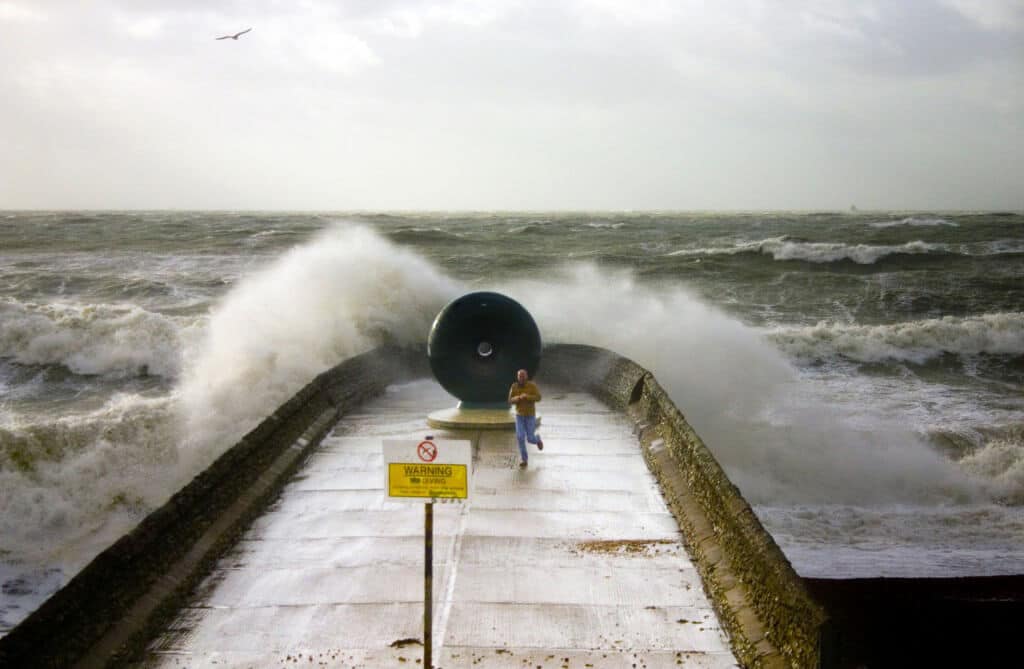While the UK may see relatively mild weather conditions compared with many other countries around the world, it is important not to underestimate the effect cold and wet weather can have on elderly and vulnerable people up and down the country, particularly those living in rural or high risk areas.

Extreme weather and flooding, which has recently been forecast by experts for the coming winter, can significantly impact upon health and wellbeing, and in some more extreme cases can cause fatalities. Harsh weather conditions mean an increased risk of isolation and falling, particularly for those susceptible to mobility issues, owing to ice on the ground and slippery outdoor surfaces. Keeping warm is especially important for those who are housebound and vulnerable to catching infections, or who live with debilitating health conditions.
In the home
Preparation is key to ensuring elderly and vulnerable people in our communities are not left in the cold this winter and do not need to venture outdoors should conditions become hazardous. Ensuring those most at risk regularly check weather forecasts is imperative, as is having a pre-prepared kit of essential items easy to hand at home in case of an emergency.
Eating at least one healthy hot meal a day is recommended when the colder weather hits and having a stock of cupboard and frozen foods that have a long shelf life and do not perish easily are good to have in the home at all times. For more tips on how to keep warm at home in the winter, please read our blog here.
Rather than being tempted to sit under a warm blanket for the duration of the day when staying indoors, if the weather is cold it is advisable to regularly keep moving, provided you can do so safely. If mobility is an issue, prepare in advance by considering telecare options that can support you to live independently in comfort and safety. Creating a contact list saved in a safe place in case of an emergency is advisable, as is installing a personal alarm. This is especially important for those who do not have neighbours they know well or have people nearby that are at home during the daytime to assist should the worst happen.
As well as ensuring the heating is working properly, wearing layers of thermal clothing to keep warm and having any repeat prescriptions stocked up is also suggested. Prepare by ensuring that there are sufficient supplies of medication, water and freshly washed clothes.
If you live in a high flood risk area, it is imperative that steps are taken to minimise danger to your wellbeing and sentimental possessions. When you know that severe weather is coming, it is advisable to keep high visibility clothing in the home and ensure that sandbags are readily available at the property, but bear in mind; these are often heavy to move, so consider how these will be put in place and when this can feasibly be done.
Venturing outdoors during bad weather conditions
Ice and slippery ground surfaces can often be invisible, leaving people with limited mobility at a greater risk of falls if venturing out during a cold snap or particularly rainy weather. If you are only venturing out into the garden or driveway, please ask someone to assist with gritting your paths in advance.
Though it is advisable for many vulnerable individuals to stay at home if weather conditions become particularly treacherous, if you must venture outdoors, it is always advisable to wear shoes with non-slip soles that have substantial grip as they can help to minimise accidents occurring. Taking a falls detector or personal pendant out with you can also help to give essential peace of mind, as can a GPS locator, which will enable relatives and loved ones to find out where you are, should you have an accident or be involved in a serious flood.
Keeping healthy during the winter months
The chances of being affected by cold and wet weather are significantly increased for people who elderly, are vulnerable or have an ongoing condition such as dementia. It is important therefore, to make sure that all possible precautions are taken to avoid catching winter illnesses such as colds and flu viruses. Ensuring that you are up to date with relevant vaccinations and practicing good hygiene are imperative to keeping harmful germs at bay. Catching flu can lead to bronchitis and pneumonia, which can be quite dangerous for those with low immune systems.
Other medical issues such as asthma and arthritis can be particularly pertinent and painful during a cold spell. Ensuring that regular exercise is undertaken for arthritis sufferers, and that those with asthma cover up with a scarf and have inhalers readily available is important.
If you’d like to find out how telecare solutions may be able to help you or a loved one stay safe this winter, please contact our team.